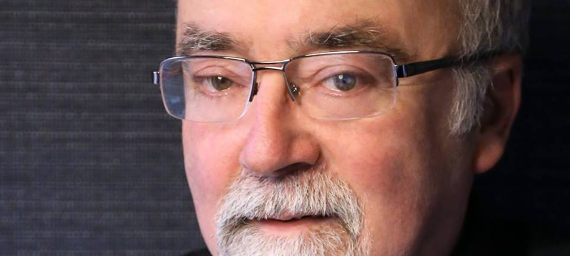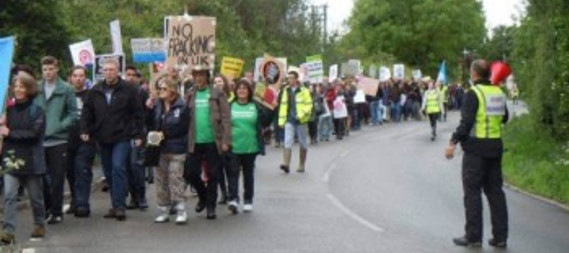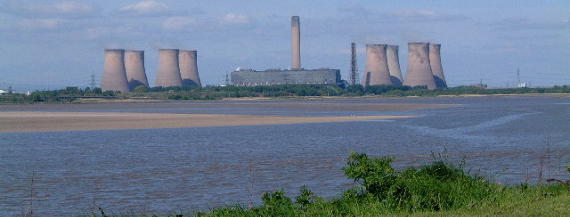 Josh
Josh A cartoon week - Josh 361
 Feb 5, 2016
Feb 5, 2016  Josh
Josh It's been a fun week.
First there was a survey of 17 countries showing the people of Britain ranking 15th in its concern over climate change. H/t GWPF
Books
Click images for more details
A few sites I've stumbled across recently....
 Josh
Josh  Feb 5, 2016
Feb 5, 2016  Josh
Josh It's been a fun week.
First there was a survey of 17 countries showing the people of Britain ranking 15th in its concern over climate change. H/t GWPF
 Bishop Hill
Bishop Hill  Feb 5, 2016
Feb 5, 2016  Energy: gas
Energy: gas 
Next week, the long-awaited public inquiry into Cuadrilla's planned shale gas developments in Lancashire kicks off. Witnesses from Cuadrilla will face off with representatives of green groups and protestors. Weeks of fun will ensue.
Readers at BH will no doubt be looking forwards to Friends of the Earth trying to convince m'learned friends that builder's sand is a dangerous carcinogen.
 Bishop Hill
Bishop Hill  Feb 5, 2016
Feb 5, 2016  Academia
Academia  Climate: Mann
Climate: Mann  Some of the more "politically aware" climate scientists have been keen that nobody should publish anything that might work against the green agenda. Michael Mann's infamous comments are a case in point. There is plenty of anecdotal evidence that climate scientists moderate their behaviour accordingly, withholding anything that might give "fodder" - in Mann's words to the sceptics. They either do this willingly, because they share Mann's political outlook, or unwillingly, because they fear the consequences.
Some of the more "politically aware" climate scientists have been keen that nobody should publish anything that might work against the green agenda. Michael Mann's infamous comments are a case in point. There is plenty of anecdotal evidence that climate scientists moderate their behaviour accordingly, withholding anything that might give "fodder" - in Mann's words to the sceptics. They either do this willingly, because they share Mann's political outlook, or unwillingly, because they fear the consequences.
A new paper in the journal Public Understanding of Science attempts to put some flesh on these bones, finding that scientists are less likely to publish if their findings on climate change are "less", rather than "more" of it.
A representative survey of 123 German climate scientists (42%) finds that although most climate scientists think that uncertainties about climate change should be made clearer in public they do not actively communicate this to journalists. Moreover, the climate scientists fear that their results could be misinterpreted in public or exploited by interest groups. Asking scientists about their readiness to publish one of two versions of a fictitious research finding shows that their concerns weigh heavier when a result implies that climate change will proceed slowly than when it implies that climate change will proceed fast.
It's fair to conclude that the scientivists have so completely corrupted the field that it is now largely unreliable.
 Bishop Hill
Bishop Hill  Feb 4, 2016
Feb 4, 2016  Academia
Academia  Bureaucrats
Bureaucrats  Sceptics have often pointed out that if the science of global warming is "settled" then it's clearly not necessary to spend a fortune researching it. The government down under now seems to have taken this message on, announcing that jobs in the ocean/atmosphere divisions at CSIRO are to be slashed. Their reasoning could have come straight from the pages of this blog:
Sceptics have often pointed out that if the science of global warming is "settled" then it's clearly not necessary to spend a fortune researching it. The government down under now seems to have taken this message on, announcing that jobs in the ocean/atmosphere divisions at CSIRO are to be slashed. Their reasoning could have come straight from the pages of this blog:
The cuts were flagged in November, just a week before the Paris climate summit began, with key divisions told to prepare lists of job cuts or to find new ways to raise revenue.
"Climate will be all gone, basically," one senior scientist said before the announcement.In the email sent out to staff on Thursday morning, CSIRO's chief executive Larry Marshall indicated that, since climate change had been established, further work in the area would be a reduced priority.
It was Lord May who said to Roger Harrabin "I'm the President of the Royal Society and I'm telling you that the science is settled". I wonder if he is reconsidering the wisdom of those remarks.
 Bishop Hill
Bishop Hill  Feb 4, 2016
Feb 4, 2016  Energy: gas
Energy: gas  Environmentalists like to claim that unconventional gas developments are going to cause us all to die of cancer or asthma. It's fair to say that few of these claims are quite as bonkers as Friends of the Earth saying that the sand used in fracks is a dangerous carcinogen. However, while the other claims are not quite that absurd, they are not exactly grounded in good science.
Environmentalists like to claim that unconventional gas developments are going to cause us all to die of cancer or asthma. It's fair to say that few of these claims are quite as bonkers as Friends of the Earth saying that the sand used in fracks is a dangerous carcinogen. However, while the other claims are not quite that absurd, they are not exactly grounded in good science.
A paper published today in a journal called Science of the Total Environment describes a review of the evidence for actual health impacts from unconventional gas and conclude there is little evidence of adverse health effects that you would want to describe as "firm". Of the 1000 articles the authors reviewed, fewer than 100 were considered worthy of further attention based on the quality of evidence presented. Only 7 could be considered "highly relevant". Health impacts were mostly "inferred rather than evidenced".
So you can understand why they would conclude:
Current scientific evidence for [unconventional natural gas development] that demonstrates associations between adverse health outcomes directly with environmental health hazards resulting from UNGD activities generally lacks methodological rigour.
But I think you could guess that anyway.
 Bishop Hill
Bishop Hill  Feb 3, 2016
Feb 3, 2016  Greens
Greens 
A firm tip of the hat to reader Stewgreen for flagging up to us this radio programme from Australia in which host Alan Jones and Liberal MP Craig Kelly discuss some of the predictions made by Professor Tim Flannery back in 2006.
It's very amusing to set out just how badly wrong "Australian of the Year 2007" Flannery has proved, but as the show makes clear, Australians are paying a very high price for heeding his augury.
 Bishop Hill
Bishop Hill  What is that old saying about repeating a lie often enough? George Monbiot is having a bit of rant in the Guardian today on the subject of (alleged) fossil fuels subsidies. It's the usual nonsense that redefines everything that greens are against as a "subsidy".
What is that old saying about repeating a lie often enough? George Monbiot is having a bit of rant in the Guardian today on the subject of (alleged) fossil fuels subsidies. It's the usual nonsense that redefines everything that greens are against as a "subsidy".
In his support, our George cites the IMF:
Already, according to the International Monetary Fund, more money is spent, directly and indirectly, on subsidising fossil fuels than on funding health services.
If you follow the trail through his link you end up at the IMF's website and a working paper by Coady et al. However, before you read it, it's hard not to notice the disclaimer, in bold, which reads:
This Working Paper should not be reported as representing the views of the IMF.
 Bishop Hill
Bishop Hill  Feb 2, 2016
Feb 2, 2016  Climate: Sceptics
Climate: Sceptics  FOI
FOI  Science Media Centre
Science Media Centre  As many readers are aware, our old friend Stephan Lewandowsky has recently published a paper in Nature that sets out his views on the circumstances in which scientists should release their data to others - the thrust of the piece being that he thinks that a favourable answer need only be given to his mates.
As many readers are aware, our old friend Stephan Lewandowsky has recently published a paper in Nature that sets out his views on the circumstances in which scientists should release their data to others - the thrust of the piece being that he thinks that a favourable answer need only be given to his mates.
I had rather rolled my eyes at this and wondered if I actually wanted to give him the attention that a rebuttal might bring, so I had resolved to ignore it. However, a post by Professor James Coyne, a psychologist who works in Groningen in the Netherlands, suggests that Lewandowsky's article is just part of a wider trend in academia.
 Bishop Hill
Bishop Hill  Feb 1, 2016
Feb 1, 2016  Energy: gas
Energy: gas  Greens
Greens  The Telegraph is reporting that the cabinet are going to take planning decisions over shale gas developments out of the hands of councils. If correct, it means that planning officers will now be left to their own devices.
The Telegraph is reporting that the cabinet are going to take planning decisions over shale gas developments out of the hands of councils. If correct, it means that planning officers will now be left to their own devices.
I think this probably means that the greens will resort to violence of one kind or another.
In some ways it could be David Cameron's miners strike moment: the time when he is handed the opportunity to face down an anti-democratic and thuggish minority. I'm not sure DC is any kind of an iron lady though. A jelly gentleman or something like that.
 Josh
Josh  Jan 30, 2016
Jan 30, 2016  Josh
Josh  Temperatures
Temperatures Thanks to Robert B over at WUWT who thought up a great name for the era of climate science we are currently enduring – The Adjustocene, where no one will ever know what the temperature is.
 Josh
Josh  Jan 29, 2016
Jan 29, 2016  Green Blob
Green Blob  Josh
Josh 
Lots on the Green Blob's not having to tell the truth, see the post below and at Third Sector, OESG and at Michael Robert's blog which includes Ben Websters Times article.
 Bishop Hill
Bishop Hill  Jan 29, 2016
Jan 29, 2016  Fake charities
Fake charities  Greens
Greens 
Things may be about to get a bit more tricky for the doughty campaigners at Friends of the Earth. According to the Times' Ben Webster, the Charities Commissioners have taken a dim view of an FoE leaflet that claimed that silica - that's sand to you or me - used in fracking fluid was a known carcinogen.
They were only able to get away with this by claiming that the claims were made by their wholly owned subsidiary FoE Limited, which is not bound by laws about fundraising by deception.
It's anyone's guess what the Commission is going to do about it. They could crack down on campaigning by charities or they could make the subsidiaries abide by the same rules as their parent charities. Everyone is going to watch with interest, including GWPF, who now have their own campaigning arm, albeit one that operates by much better ethical standards than FoE.
 Bishop Hill
Bishop Hill  Jan 29, 2016
Jan 29, 2016  Energy: grid
Energy: grid  Well if you are supposed to live in interesting times then it looks as though the next few winters could border on completely fascinating. I say this because of the news last night that SSE are thinking of shutting down another conventional power station.
Well if you are supposed to live in interesting times then it looks as though the next few winters could border on completely fascinating. I say this because of the news last night that SSE are thinking of shutting down another conventional power station.
Energy giant SSE is considering shutting its Fiddler's Ferry coal-fired power plant early, threatening to blow a hole in the Government’s plans to keep the lights on, the Telegraph has learnt.
The 2GW power plant in Cheshire produces enough electricity to power two million homes and in 2014 secured a subsidy contract with the Government to guarantee three of the plant’s four units would be available to generate in 2018-19.
Is it to early to describe the capacity market as an unmitigated disaster?
 Bishop Hill
Bishop Hill  Jan 28, 2016
Jan 28, 2016  Media
Media Many thanks to reader Stewgreen for pointing me to this fascinating look behind the scenes at the Guardian...
 Bishop Hill
Bishop Hill  Jan 28, 2016
Jan 28, 2016  Climate: Parliament
Climate: Parliament The latest opinion polls seem to show that greenery is slipping right off the political agenda. In fact there may even be a correlation between the direction of a party's poll ratings movement and the strength of its eco-urge.
The Greens and the LibDems are going hand-in-hand over the precipice, while Labour is hanging on by its fingertips. Meanwhile uber-baddies UKIP are on the up, as are the Conservatives, now that they are stepping back from the ecobrink.
Westminster voting intention:
CON: 40% (+2)
LAB: 31% (-)
UKIP: 11% (+2)
LDEM: 7% (-2)
GRN: 4% (-2)
(via Ipsos-Mori / 23 - 25 Jan)
— Britain Elects (@britainelects) January 28, 2016Watch and enjoy.